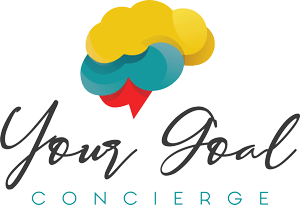Why Entrepreneurs and Business Owners Need Counseling Skills
Erica Kesse
Why Entrepreneurs and Business Owners Need Counseling Skills

Entrepreneurs and business owners face a unique set of challenges. They are responsible for making decisions that affect the lives of their employees, customers, and investors. They also need to be able to manage their time effectively, deal with stress, and overcome obstacles.
Counseling skills can help entrepreneurs and business owners develop the skills they need to be successful. Counseling can help entrepreneurs and business owners:
- Develop a clear vision for their business
- Create a mission statement that inspires others
- Communicate effectively with their employees, customers, and investors
- Manage their time effectively
- Deal with stress and burnout
- Overcome obstacles
Counseling can also help entrepreneurs and business owners develop the self-awareness and emotional intelligence they need to be successful leaders. By developing these skills, entrepreneurs and business owners can be more effective in their roles and help their businesses achieve success.
Types of Counseling Skills
There are many different types of counseling skills that can help entrepreneurs and business owners. Some of the most common types of counseling skills include:
- Vision casting: The ability to create a clear and compelling vision for the future.
- Mission creation: The process of defining the purpose of an organization.
- Communication skills: The ability to communicate effectively with others, both verbally and in writing.
- Time management: The ability to manage time effectively in order to get things done.
- Stress management: The ability to manage stress effectively.
- Conflict resolution: The ability to resolve conflict effectively.
- Decision making: The ability to make sound decisions.
- Problem solving: The ability to solve problems effectively.
- Thrive Planning: The process of identifying your triggers, coping mechanisms, and social support system to employ with intentionality.
How to Get Counseling Skills
There are many ways to get counseling skills. Some people choose to get counseling from a therapist, while others prefer to learn these skills on their own. There are also many books and online resources that can teach people about counseling skills. Honey, You Need Counseling Skills; Heal Yourself, Ignite the Leader, Grow your Business is a guided journal and valuable resource.
The Benefits of Counseling Skills
There are many benefits to developing counseling skills. Some of the benefits of counseling skills include:
- Increased success in business
- Improved relationships
- Increased self-awareness
- Reduced stress
- Improved decision making
- Increased problem solving skills
How to Use Counseling Skills
Counseling skills can be used in many different ways. Some people use these skills to help them develop their businesses, while others use them to improve their relationships. Counseling skills can also be used to help people deal with stress and other challenges in their lives.
Conclusion
Counseling skills are essential for entrepreneurs and business owners. By developing these skills, entrepreneurs and business owners can be more successful in their roles and help their businesses achieve success.



